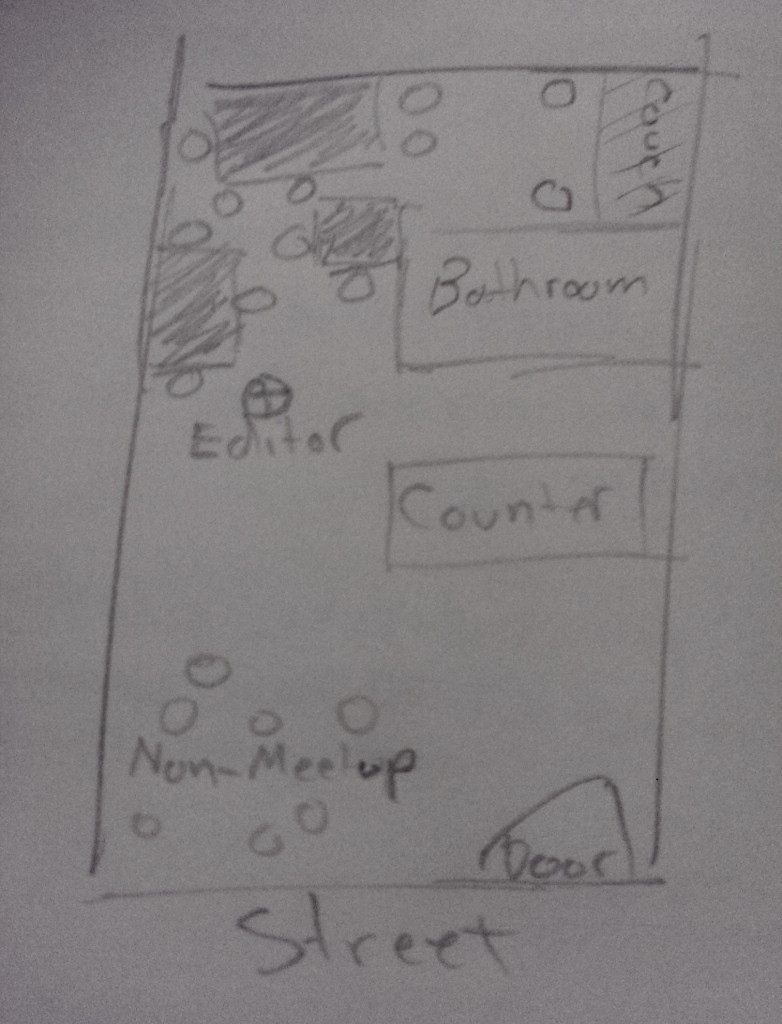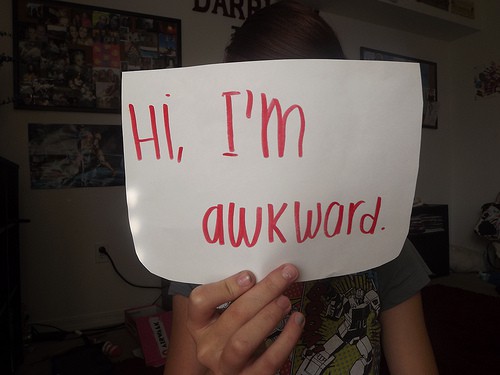There’s an online publication that I adore. I won’t name them in this article because I love them so much. They’ve built a publication and community around the geeky topics that I hold dear: superheroes & sci-fi (with a dash of fantasy and actual science). I read it religiously, multiple times a day. So when I saw that they were hosting a meetup in San Francisco, I felt like I had to attend.
You may not know that I’m an introvert. But you probably know that many fans of the aforementioned geeky topics are. So I went into the whole thing a little nervous, but also excited at the potential of being welcomed by my people.
Instead, it was an incredibly awkward experience. Although I did have a few nice conversations, I did not suddenly feel like I had reached the geeky promised land.
Why wasn’t this meetup a success? As a geeky community-builder is wont to do, I decided to analyze what made the event so awkward (for me, at least).
Announcement/RSVPs
The event was announced on their site as a regular blog post – no RSVPing or ticket purchase, just the announcement. The normally-busy comments section was surprisingly quiet, mostly people saying “argh, I wish I were in San Francisco”. One or two fellow introverts spoke up and said they were going to try to come. The excitement I’m sure others felt was tamped down by the thought that, perhaps, nobody else was going. An introvert’s nightmare.
Solution: making people RSVP would have helped the organizers estimate attendance (for free events, expect 20-50% of RSVPs to show). Making people RSVP via comment would have started to build confidence about the event. Adding something fun – “leave a comment and your favorite gif if you’re attending” – would have been on-brand for the site and taken that confidence all the way to excitement.
Location
The event took place at a coffee shop/scifi book store. While having the advantages of proximity to public transportation and being on-theme, it was not the best spot for a meetup. Caffeine generally doesn’t help with conversation, and the space was very loud.
Solution: while I don’t think alcohol solves many problems, it is a GREAT social lubricant. Hosting an event for introverts at a place with alcohol would have helped get discussions going. Bars are hard because they can be dark and loud; however, there are tons of spaces (both formal event spaces and private locations) that are booze- and meetup-friendly in the Bay Area.
Layout
I’ve sketched the layout below. There are a multitude of problems with it.

First: having any sort of bottleneck makes it awkward for new people to arrive. When you have a more open space, people can assess what’s going on, put their things down, get a drink, find a group to join, etc.
Second: having the Editor, the life of the party, right in the bottleneck forces you to talk to them. Which isn’t bad…except that it’s high-pressure (“Oh my god, she’s the one who started all this!”) and she’s in demand. I started chatting with her and then she quickly got distracted by people she knew arriving. There’s nothing wrong with that…but it meant that I had to stand there and smile politely until I could excuse myself from a conversation I was clearly not part of.
Third: having such a tight space meant it was hard to mingle, so you had choose a group and try to wrangle your way in.
Fourth: having very limited tables and seats meant that they were quickly filled, and new arrivals felt the opposite of welcome. “Welcome, please don’t take a seat because there are none”? Bad form.
Solution: host the event in a more open space. Have one seating area that only fits a few people, so standing and creating malleable groups is necessary. Put the drinks off to the side so newcomers can come in, put things down, get a drink and figure out how to enter the fray. Let the Editor flit around; don’t worry about greeting people, just have clear signage so people know they’re in the right place.
Interests
Turns out, even if you’re all frequenters of a geeky website, you can be into very different things. Some of us (*coughmecough*) were very into the latest comic trades. Some were really into deep, heavy sci-fi (which I appreciate but don’t read very often). Some were just into science. Some were a mix of the above. The result was awkward groping for common topics.
Solution: build in a way to break the ice. This could be as simple as a name tag with a few interests (boring, but totally effective). You could also go more fun: have a bunch of stickers that represent different interests (Marvel, DC, Spider-Man, X-Men, Star Trek, Star Wars, NASA, Game of Thrones, etc). Make it a bit of a challenge to assemble your unique set of stickers – fun, but also a great way to immediately know what to talk to someone about.
In the end, running real-world events requires that you really consider human dynamics. Something that might seem acceptable to you, the host, might be a nightmare for your introvert attendee who doesn’t know anyone. A great event doesn’t need to have fancy production values; it needs to be optimized for people to get to know each other and connect on a deeper level. Here’s hoping their next meetup manages this!
Awkward photo courtesy of Laura Barberis.


